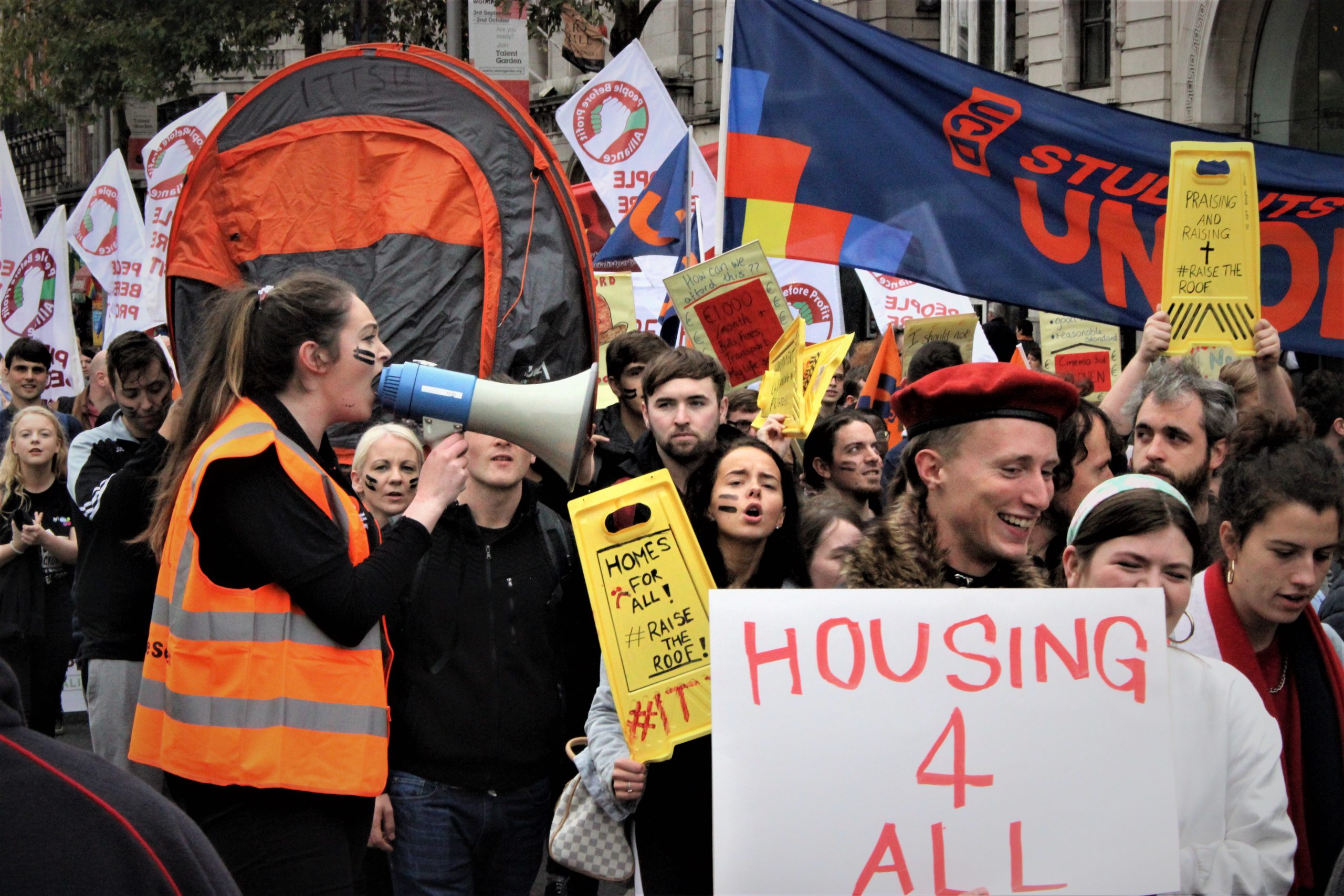As universities have returned to in-person teaching, students have flocked back to campus, and with that, the search for student accommodation is well underway. In many instances, this search is a race to secure a room in student accommodation, or a reasonably priced flat or house within a reasonable distance from college. For many, this is a near impossible task. As with every year, the accommodation race leaves many students without any housing and under pressure to avoid homelessness and couch-surfing at the beginning of the academic year.
With this in mind, the Union of Students in Ireland (USI), representing over 374,000 students across the country, launched the “No Keys, No Degrees” campaign, to eliminate the need for cutthroat competition for rooms at the beginning of each semester . With this campaign, the USI aims to spread awareness and apply pressure to the government to ensure that all students are accommodated at the beginning of each semester.
“The demand for student housing has been at crisis level for quite some time, but as more and more students opt for third level education, the strain is increasing exponentially, with no sign of ceasing.”
The demand for student housing has been at crisis level for quite some time, but as more and more students opt for third level education, the strain is increasing exponentially, with no sign of ceasing. Projections from the Higher Education Authority state that the demand for student accommodation will increase from 168,000 students in 2014 to 193,000 students in 2024. They also estimate that the available beds for students in 2024 will rise to 43,500, while the demand will increase to 68,670. Research shows that such a massive inadequacy leaves students that require student housing neglected each year.
According to a statement released by the USI, “Many SU Presidents are reporting to USI that they are each working with hundreds of students who feel they have nowhere left to go in their search for accommodation this year.”
The USI feel as though the government is to blame for this crisis that is currently “worse than ever” and that they “and students across Ireland are outraged at the Government’s inability to tackle the housing crisis, which is having a huge impact on many students’ ability to access third-level education.”
“There just isn’t enough purpose-built student accommodation to meet the needs of students wanting to attend third level education in Ireland today.”
USI President Clare Austick, said: “There are thousands of students across the Island who cannot find accommodation. With waiting lists of up to 200 plus people, students are exploring the option of staying in B&Bs, hostels and hotels. There just isn’t enough purpose-built student accommodation to meet the needs of students wanting to attend third level education in Ireland today. And a lot of the accommodation that was built as student accommodation is now being used for professionals and short-term holiday lets and students have been pushed out. Some students are even considering deferring the year or dropping out because of the situation.”
She stresses that a lack of student accommodation may be one of the biggest barriers for students entering third level education, “We talk about the barriers blocking access to education, but many students now physically cannot access education because they don’t have a place to stay.”
“The housing crisis has continuously worsened over the last decade with the Government failing to relieve the stress and pressure of the housing situation on the next generation. It really isn’t good enough, we need to see urgent, effective and long-term action now.”
In order to express their frustration at the accommodation crisis in Ireland, members of the USI and many student representatives from various colleges and universities staged a Sleep Out protest in front of Dail Eireann on the 21st of September. They all had the common aims of spreading awareness of the “No Keys, No Degrees” campaign, and urging the government to be more proactive in tackling the crisis at hand. In their release prior to the Sleep Out, the USI listed their demands from the protest to be “funding and a plan to develop more affordable Purpose-Built Student Accommodation, no new course places without living spaces being provided, legislation and other necessary action to retain student beds, and rent controls”.
The Sleep Out protest was certainly effective in gaining the attention of both the government and the media, and in turn highlighting the issue of student accommodation shortages. Speaking to the Dail, Tanaiste Leo Varadkar assured that the issue is “something that the government is very much aware of, the challenges that students face as they’re returned to third level, we’ve responded by increasing the Student Assistance Fund”.
Meanwhile, Taoiseach Michael Martin has highlighted the limits of what the government can do in the face of the crisis, saying “We have brought in measures to try and protect students in terms of the amount of money that can be asked upfront from students in respect of deposits but again it’s in terms of the supply issue, in terms of what we can do with university or third level institutions, particularly in the Institutes of Technology, in terms of their capacity to build student-based accommodation, but that will take time”.
Student representatives believe these responses are nowhere near sufficient in solving the student accommodation crisis. While student populations rise, accommodation options are slow, in some cases even stagnant, in growth.
The shortage of student housing and accommodation options is projected to continue to rise, almost at an increasing rate. While the “No Keys, No Degrees” campaign has been and continues to be successful in raising awareness of the issue, it is up to both the government and universities around the country to hold themselves accountable for this issue, and provide sufficient resources and housing options for students, to prevent potential homelessness at the beginning of the college year, and to alleviate the stress of those students who struggle to find housing each year.






